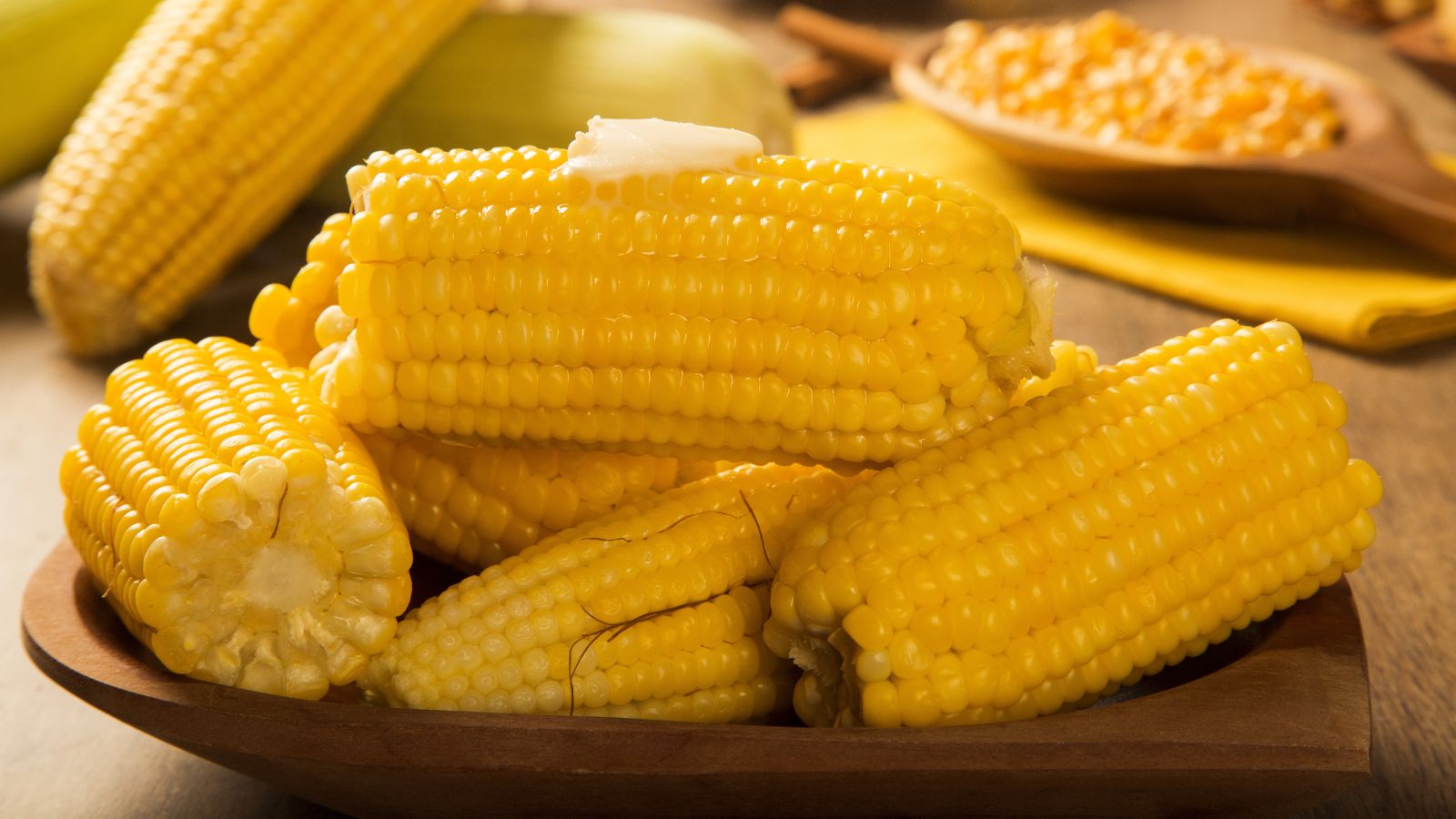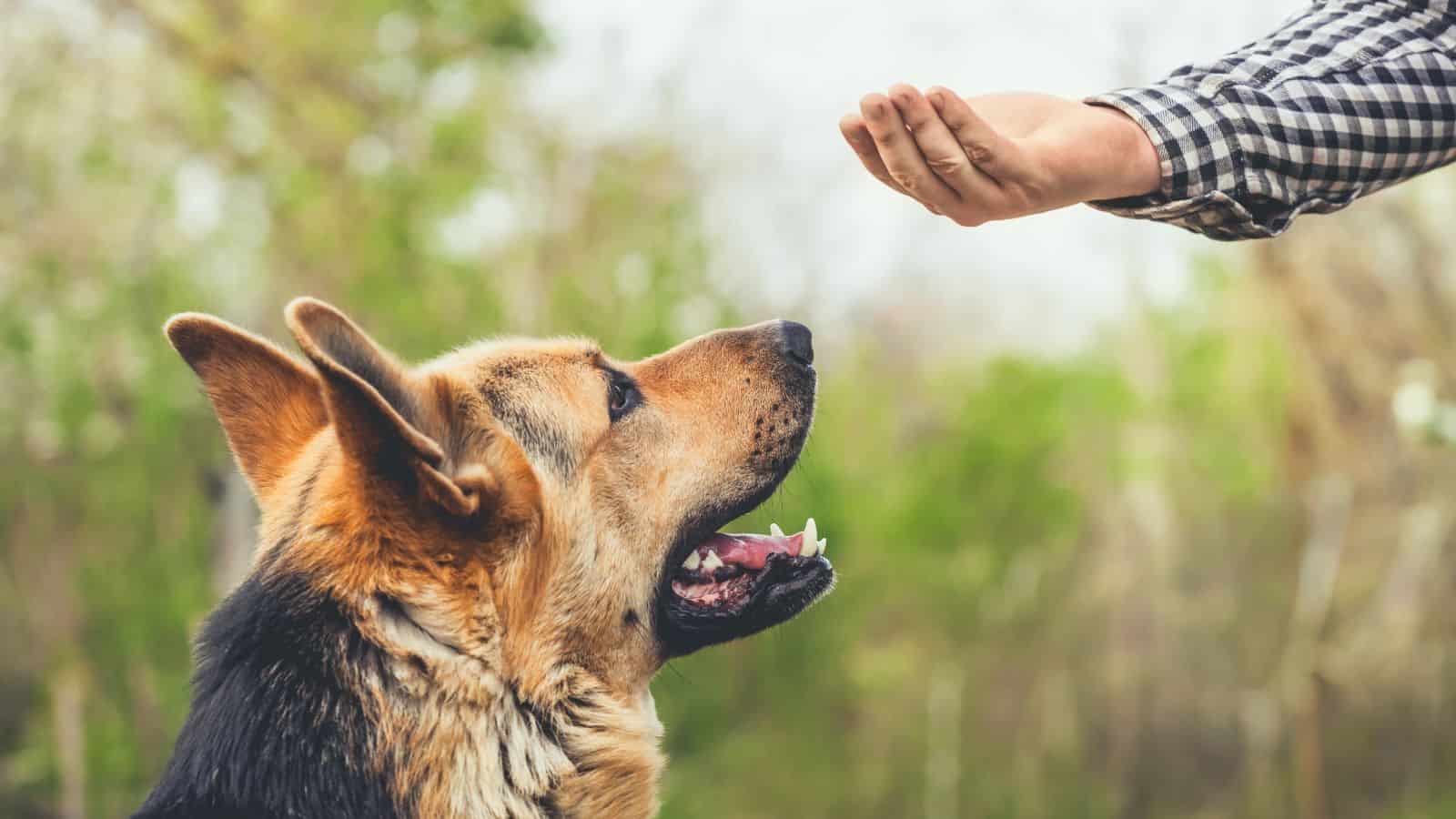When it comes to feeding your dog, it’s crucial to be aware of which foods are safe and which could potentially harm them. Dogs have different metabolic and digestive systems compared to humans, making some foods that are harmless to us toxic to them. Make sure to never give these 19 foods to your dog.
Chocolate

Most people know you shouldn’t give chocolate to dogs, but your dog may not understand. For their sake, explain that it contains caffeine and methylxanthines, which can cause seizures, irregular heart function, and even worse in large quantities. Darker chocolate contains more theobromine than milk chocolate, making it more dangerous. In particular, you need to watch out for cocoa powder, baker’s chocolate, gourmet dark chocolate, and semisweet chocolate.
Nuts

Don’t worry, we aren’t telling you no more peanut butter—just be sure it is free from sugar and sweeteners. Avoid almonds because they can cause digestive irritation. Macadamia nuts contain a toxin that can cause muscle weakness, tremors, and vomiting in dogs, and hazelnuts are technically safe, but their size and shape make them a choking hazard. Cashews are high in potassium, which may worsen urinary conditions, and walnuts have a shape that can cause intestinal blockage as well as a high chance of mold contamination.
Ice Cream

Dairy can be OK for some dogs, but others are lactose intolerant. In general, just be mindful of your dog’s ability to process dairy. Ice cream is a different story due to the added sugars, flavorings, and other ingredients that make it a no-go for dogs. There are dog-specific ice creams out there if you just need to give your good boy or girl a treat.
Cold Cuts

Cold cuts and deli meats are often highly processed and contain a lot of fat and salt, which isn’t healthy for your dog. Low-sodium chicken and turkey cold cuts can be fine, but home-cooked meat is best.
Xylitol

Xylitol, a sugar alternative, is extremely toxic to dogs, even in small amounts. When dogs consume xylitol, it causes their bodies to quickly produce a lot of insulin, which can lead to dangerous hypoglycemia. Though you probably aren’t sprinkling artificial sweeteners on your dog’s food, they can hide in other foods they may get their paws on.
Corn on the Cob

You will generally get the green light for adding veggies to your dog’s diet, but corn on the cob can be problematic because it doesn’t digest in their stomachs. If your pup mistakes the cob for a chew toy, make sure to take it away before it causes digestive blockages or perforation.
Alcohol

Hopefully, you wouldn’t make your dog a martini, but just in case the thought crossed your mind, it’s not safe. Even small amounts can cause intoxication, leading to vomiting, diarrhea, difficulty breathing, and even death. Alcohol can also be found in rotten apples, uncooked bread or pizza dough, antifreeze, cologne, sloe berries, and varnishes and paints.
Salt

Take the salt shaker away from your pup at dinner time. Though we doubt your dog is adding salt to their food, be mindful of the amount of sodium in the prepared foods you feed them. Excessive salt intake can lead to salt poisoning, which manifests as vomiting, diarrhea, tremors, and seizures.
Sweets

Sweets should be limited for all of us, especially your fur babies. High sugar content can lead to obesity and dental problems. Many may contain xylitol or chocolate as well. That peanut butter cookie has no benefit for your dog, so stick to cookies made for dogs.
Coffee and Tea

“While a little lick of your latte now and then may be harmless, a dog who eats tea bags, coffee grounds, or diet pills containing caffeine needs emergency medical treatment,” says We Feed Raw. Caffeine can be toxic, leading to restlessness, rapid breathing, heart palpitations, and muscle tremors.
Grapes and Raisins

Some dogs love grapes, but others can die from them. We don’t suggest taking the risk. The reason many grapes and raisins are so toxic may be due to a fluoride-based pesticide called cryolite. Scientists still aren’t certain why grapes and raisins sometimes make dogs extremely sick, while other times, dogs can eat large amounts of the fruit with no side effects whatsoever.
Onions and Garlic

Onions and garlic can be lethal because of an ingredient called thiosulfate, which can damage your pet’s red blood cells and cause anemia. Thiosulfate is found in onions, shallots, and chives, but it’s especially potent in garlic. Be aware of the table scraps you feed your furry friend, like pizza or meatballs, because they often have garlic and onions.
Avocado

It may seem like a great idea to add a slice of avocado to your dog’s food, but that would be a huge mistake. “For us, it’s considered a ‘healthy fat,’ but this is actually the exact reason it’s unhealthy for dogs—its fat content is so high that it can cause pancreatitis. Avocados also contain persin, which can make dogs extremely sick,” says Green Matters.
Tomato Stems and Leaves

Red means yes, and green means no. Ripe red tomatoes are perfectly delicious and safe to add to your dog’s dish. The danger is in the green. Green tomatoes, tomato leaves, and stems contain a toxin called solanine, which can cause gastrointestinal upset and discomfort in dogs.
Persimmons

It is tempting to think what is good and tastes good for us would also be good for dogs; however, persimmons can cause digestive upset and even lead to intestinal blockages in dogs. So leave this juicy fruit on your plate, not theirs.
Fat Trimmings and Bones

Nationwide warns, “No more rewarding your pet with fat trimmed from your steak, chicken, or pork. You run the risk of causing pancreas and liver problems.” Be cautious of leftover cooked bones that are more likely to splinter, as the sharp pieces can tear digestive organs and cause internal bleeding. There are lots of other alternatives out there that are much safer.
Yeast Dough

Any uncooked product containing yeast, such as bread dough or pizza dough, poses two problems for dogs that eat it. Yeast can expand in the stomach, leading to pain and potentially causing the stomach to twist. Yeast also converts the sugar in the dough to alcohol, and the stomach creates an environment for fermentation, leading to alcohol poisoning.
Fruit Seeds and Pits

Many fruits and seeds contain cyanide, which is poisonous. They can also pose choking hazards or cause intestinal blockages. Apples and cherries are prime examples of fruits dogs can have, but you have to be sure the seeds and pits are removed.
Nutmeg

Nutmeg contains myristicin, a toxin that can cause mild stomach upset in small amounts and symptoms like disorientation, high blood pressure, abdominal pain, dry mouth, and seizures in large doses, so make sure to keep your spices well out of your dog’s reach.

